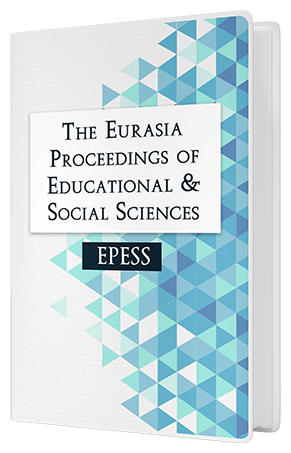Exploring the Proficiency of Virtual Learning Technologies for Language Learning
DOI:
https://doi.org/10.55549/epess.1179339Keywords:
Online learning, Languages, Distance learning, Videoconferencing, EffectivenessAbstract
The COVID’19 Pandemic created a major shift in the education delivery system, from the traditional classroom to E-learning for schools and universities. From the many subjects, language learning has been pursued by students and individuals as recreation. People have adopted various online mediums for learning their preferred languages. Educational institutes have embraced applications like Microsoft Teams and Zoom to maintain an effective learning environment for the students. With the development of distance learning technologies, examining the effectiveness of these resources used for teaching has sparked an interest in researchers and educators. This present study seeks to (a) Understand student's perception towards e-learning languages via video conferencing platforms and (b) Identify pros and cons of distance learning technology for teaching dialects. For the purpose of this research, a mixed method research design was employed through an online questionnaire designed for school and university students. This study also carefully reviews existing literature on various aspects of language and distance learning. This research aims to establish concrete evidence to support online learning of languages as a new teaching approach. As a solution, this paper encompasses a conceptual framework that is an AI-based prototype, an extension for video conferencing platforms and learning management systems. Future researchers should explore solutions for resolving challenges shared through this paper.Downloads
Published
Issue
Section
License
Copyright (c) 2022 The Eurasia Proceedings of Educational and Social Sciences

This work is licensed under a Creative Commons Attribution-NonCommercial-ShareAlike 4.0 International License.
The articles may be used for research, teaching, and private study purposes. Any substantial or systematic reproduction, redistribution, reselling, loan, sub-licensing, systematic supply, or distribution in any form to anyone is expressly forbidden. Authors alone are responsible for the contents of their articles. The journal owns the copyright of the articles. The publisher shall not be liable for any loss, actions, claims, proceedings, demand, or costs or damages whatsoever or howsoever caused arising directly or indirectly in connection with or arising out of the use of the research material. All authors are requested to disclose any actual or potential conflict of interest including any financial, personal or other relationships with other people or organizations regarding the submitted work.




